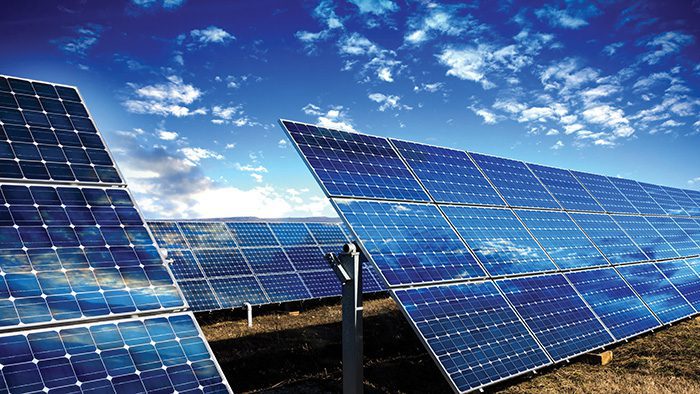New Report Shows EU Solar Installations Rise Nearly 50%
Credit to Author: Darrell Proctor| Date: Tue, 20 Dec 2022 17:49:55 +0000

A new report from industry group SolarPower Europe shows that solar installations in the European Union increased by almost 50% year-over-year in 2022, to a record 41.4 GW of generation capacity.
“The numbers are clear. Solar is offering a lifeline amid energy and climate crises,” said Walburga Hemetsberger, CEO of SolarPower Europe. “No other energy source is growing as quickly or reliably as solar.”
Finding other sources of energy has become critical for many European countries, which for years have relied on natural gas from Russia. The supply of gas has lessened after Russia’s invasion of Ukraine. The International Energy Agency has said the EU needs to install about 60 GW of solar power in 2023 to compensate for shortfalls in Russian gas.
Germany Leads New Capacity
Germany installed more solar power capacity than any other EU nation, adding about 8 GW of new generation in 2022. Germany has closed most of its coal-fired and nuclear power plants as the country transitions to renewable energy. The country had planned a complete phase-out of nuclear power by the end of this year, but government officials have called for three plants to remain in operation until at least mid-April of next year.

Spain added 7.5 GW of solar generation capacity this year, according to the report. Poland (4.9 GW), the Netherlands (4 GW), and France (2.7 GW) round out the top five. Poland moved from a net-metering to a net-billing strategy in April of this year. That transition, along with high electricity prices and a fast-growing utility-scale segment, contributed to its improved pace of solar adoption.
Portugal moved into the top 10 for the first time, with SolarPower Europe reporting the country had a 251% increase in solar generation capacity.
The report said, “The small-scale PV [photovoltaic] segment has bolstered the market, thanks to the country’s favorable Superbonus 110% incentive scheme, and high electricity prices which have improved the attractiveness of self-consumption business models.”
Total EU Capacity up 25%
The EU’s total solar power capacity grew by 25%, from 167.5 GW in 2021 to 208.9 GW in 2022, according to SPE. The industry body forecasts annual PV growth in Europe will be 53.6 GW in 2023, and 85 GW in 2026, according to its “most likely” scenario. This means the EU solar market is set to more than double within four years, reaching 484 GW by 2026.
REPowerEU, a European Commission plan to expand renewable power generation across the bloc, calls for renewable energy to supply at least 45% of the EU’s electricity by 2030. The report released Tuesday said the EU will need more workers who can install solar panels and connect solar arrays to the power grid, and suggested more training programs to provide qualified technicians.
SolarPower Europe also said regulations governing solar power need to remain stable to provide more market certainty. The group said administrative procedures, including permitting for new projects, should be streamlined to encourage more solar installation.
The group said maintaining a stable power grid, and increased European manufacturing of solar panels, also would contribute to continued growth in the sector.
“It’s more than high time to take solar seriously. That means tackling barriers head-on,” said Dries Acke, policy director at SolarPower Europe. “We need more electricians and stable electricity market regulation. A solar-powered Europe can only be based on smoother administrative processes, speedier grid connections, and resilient supply chains.”
—Darrell Proctor is a senior associate editor for POWER (@POWERmagazine).
The post New Report Shows EU Solar Installations Rise Nearly 50% appeared first on POWER Magazine.